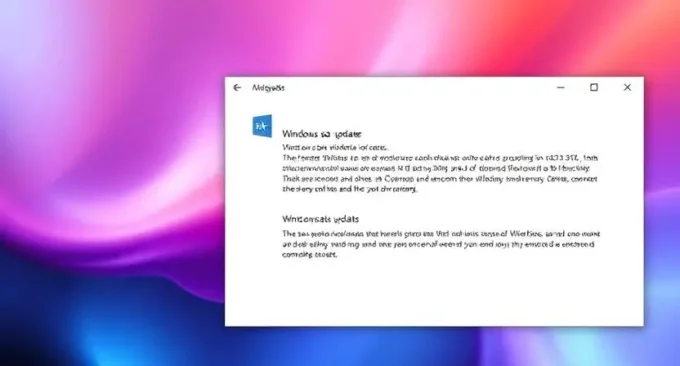For thousands of Filipinos, pasonet has become an essential instrument in the rapidly changing world of digital employment and distant access to online opportunities. Pasonet, which was once created as a combination of the words “piso” and “internet,” today stands for a larger digital revolution. What began as coin-operated internet kiosks has evolved into a representation of affordable connectivity and job opportunities for marginalized areas.
The Pasonet model aims to democratize access to digital jobs, e-learning, e-commerce, and freelance opportunities for millions of people. It is not only about providing inexpensive internet. Gaining access to the digital economy requires you to comprehend Paso net’s impact, regardless of your status as a student, job seeker, virtual assistant, or small business owner.
How Pasonet Works: The Digital Employment Kiosk Revolution
Pasonet units are typically repurposed computer setups placed in small shops, sari-sari stores, or mobile kiosks. They operate on a pay-per-minute basis, enabling users to browse the web, apply for jobs, attend online classes, or even manage small online gigs.
Key components of a modern Paso net system include:
- Internet-connected desktop computers
- Coin or time-based management software
- Secure access points for logging in/out
- Optional printing/scanning services for documents
These setups make freelancing platforms like Upwork, OnlineJobs.ph, Fiverr, and remote ESL teaching portals easily accessible to people without personal internet or computers.
Digital Employment Opportunities Enabled by Pasonet
1. Online Freelancing Jobs
Paso net provides access to high-demand freelance roles such as:
- Data entry and virtual assistance
- Graphic design and video editing
- Content writing and SEO
- Customer support and chat moderation
Filipinos use Pasonet booths to create profiles on freelancing platforms, complete projects, and communicate with global clients.
2. Teaching English as a Second Language
In order to communicate with students from China, Japan, and Korea, thousands of ESL teachers in the Philippines rely on inexpensive internet cafés and Paso net stations. Many have established long-term teaching careers without home internet by utilizing headsets and dependable video conferencing.
3. E-commerce & Internet Business
Paso net kiosks are used by many would-be business owners to:
- Create stores on Facebook Marketplace, Lazada, or Shopee.
- Create marketing materials with Canva.
- Utilize social media to reply to customers or manage inventory.
Even in rural barangays, micro-entrepreneurs can create cash streams thanks to these platforms.
The Role of Pasonet in Education and Learning
The COVID-19 pandemic accelerated online learning, and Paso net was a lifeline for thousands of students who could not afford mobile data or broadband. Through these kiosks, students:
- Attended DepEd and CHED online modules
- Submitted assignments on Google Classroom
- Accessed free courses on TESDA Online Program or Coursera
Digital literacy programs delivered via Paso net are also helping users build skills in coding, online business, and digital marketing.
Pasonet and Government Support Programs
Government agencies such as DICT (Department of Information and Communications Technology) and TESDA have acknowledged Paso net’s role in:
- Bridging the digital divide
- Creating tech-enabled jobs
- Promoting ICT hubs in far-flung areas
Initiatives like Tech4ED Centers and Free Wi-Fi in Public Places aim to extend similar services but Paso net remains more accessible due to its grassroots, community-based model.
How Pasonet Supports Local Communities and Microenterprises
Paso net stations are not just business ventures; they are community enablers. Many owners employ locals to manage kiosks, offering:
- Digital services like printing, typing, and document scanning
- Small-scale training workshops on using email, Microsoft Word, or Facebook marketing
- Free or discounted hours for students and jobseekers
This ecosystem boosts both employment and entrepreneurial development at the grassroots level.
Challenges Facing Pasonet Operators
Despite its benefits, Paso net operators face significant challenges:
- Rising electricity and internet costs
- Cybersecurity threats and online fraud
- Limited awareness of remote job opportunities
- Regulatory constraints or local government permits
To sustain their businesses, operators often diversify into allied services like printing, snacks, mobile load, or gaming.
How to Start a Pasonet Business
Entrepreneurs interested in launching a Paso net business need:
- Initial Capital Investment:
- Php 30,000–100,000 depending on scale
- Includes PCs, timers, furniture, cooling, and signage
- Location Selection:
- High foot traffic near schools or terminals
- Power reliability and internet connectivity
- Business Permits:
- Barangay clearance, business license, DTI registration
- Marketing & Community Building:
- Loyalty programs, bundles for students, job coaching workshops
This model provides fast ROI and steady income in low-income areas.
The Future of Pasonet: Digital Inclusion at Scale
The future of Pasonet lies in evolution—transitioning from basic internet kiosks to digital employment centers. This includes:
- Offering online job application support
- Hosting skills training and webinars
- Integrating mobile payments and e-wallets
- Partnering with BPOs and job platforms
As remote work becomes the norm, Paso net could be a blueprint for digital inclusion across Southeast Asia.
Conclusion
Pasonet is more than a kiosk—it’s a gateway to the future. By providing low-cost access to education, employment, and entrepreneurship, it is transforming how people work, learn, and grow in the Philippines.
As digital opportunities continue to multiply, expanding the Paso net ecosystem will be critical to ensuring no one is left behind in the digital revolution.















Leave a comment